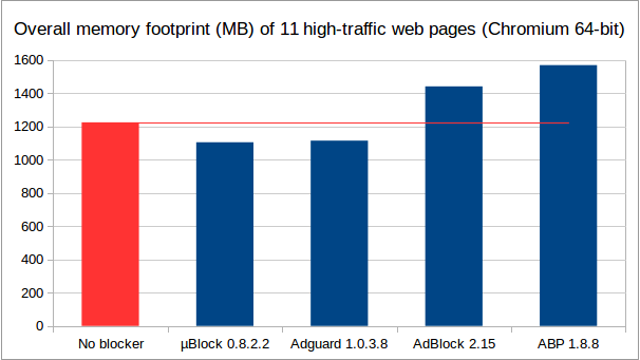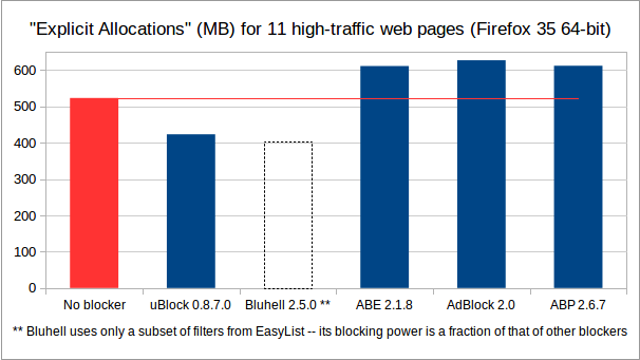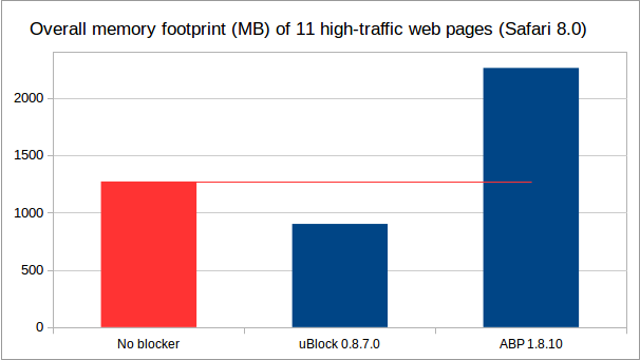
|
|
| uBlock: an efficient blocker extension for your browser. Fast, potent, and lean. | |
uBlock comes in two sibling flavors: this project, and uBlock Origin.
slightly different feature sets — same performance
Both are free, open-source, and share the contributions of many.
uBlock is a general-purpose blocker — not an ad blocker specifically.
uBlock blocks ads through its support of the Adblock Plus filter syntax. uBlock extends the syntax and is designed to work with custom rules and filters.
uBlock's main goal is to help users neutralize privacy-invading apparatus — ads being one example.
Feel free to read about uBlock's development philosophy.
-
Safari: available to install from the homepage, or from the Safari Extension Gallery.
-
Chrome: available on the Chrome Web Store or for manual installation.
-
Firefox: available on the Firefox Add-ons homepage, or for manual installation.
-
Due to Mozilla's review process, the version of uBlock available from the Add-ons homepage is currently often outdated. This isn't in our control.
-
Opera: Opera shares Chrome's underlying engine, so you can install uBlock simply by grabbing the latest release for Chrome.
[1] Details of the benchmark available at Firefox version: benchmarking memory footprint.
[2] Important note: There is currently a bug in Chromium 39+ which causes a new memory leak each time the popup UI of an extension is opened. This affects all extensions. Keep this in mind when measuring Chromium's memory usage. In the benchmarks, I avoided opening the popups completely.
uBlock is also easy on the CPU
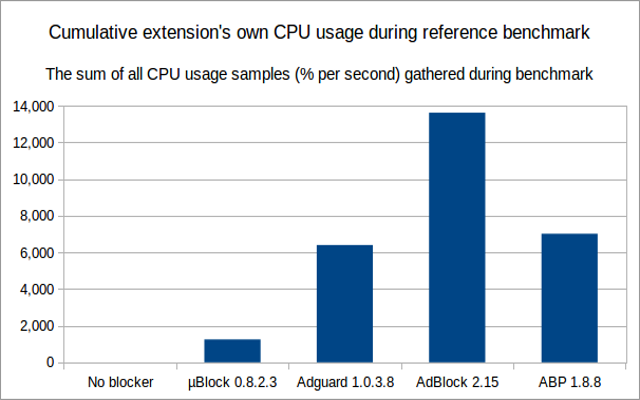
Details of the benchmark available in this LibreOffice spreadsheet.
Being lean and efficient doesn't mean blocking less
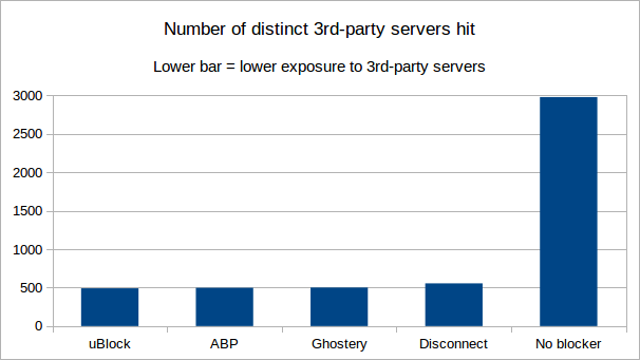
For details of benchmark, see
uBlock and others: Blocking ads, trackers, malwares.
See the releases pages for a history of releases and highlights for each release.
-
To benefit from uBlock's higher efficiency, it's advised that you don't use other inefficient blockers at the same time (such as AdBlock or Adblock Plus). uBlock will do as well or better than most popular ad blockers.
-
It's important to note that blocking ads is not theft. Don't fall for this creepy idea. The ultimate logical consequence of
blocking = theftis the criminalisation of the inalienable right to privacy. -
EasyList, Peter Lowe's Adservers, EasyPrivacy and Malware domains are enabled by default when you install uBlock. Many more lists are readily available to block trackers, analytics, and more. Hosts files are also supported.
-
Once you install uBlock, you can easily un-select any of the pre-selected filter lists if you think uBlock blocks too much. For reference, Adblock Plus installs with only EasyList enabled by default.
-
Feel free to read about the extension's required permissions.
Free. Open source. For users by users.
If uBlock is useful to you, donations to support development are much appreciated.
uBlock is made useful because of the filter lists it utilizes. We deeply appreciate the people working hard to maintain the filter lists we're using, which were made available to use by all for free.
